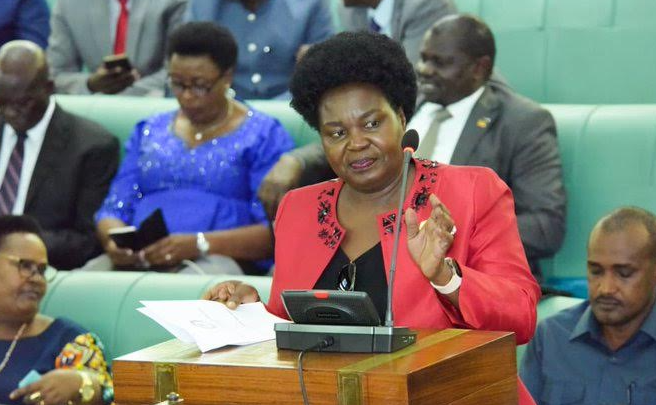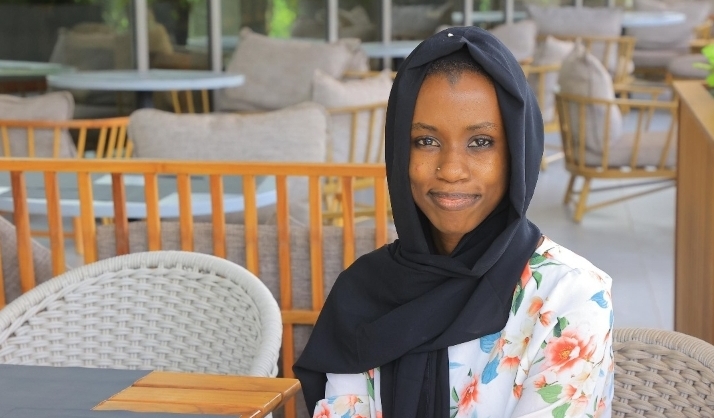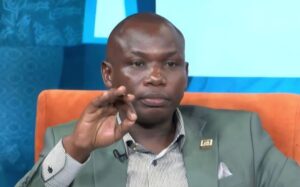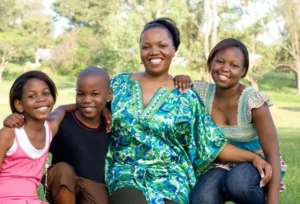News
Govt Ready to Take Over Umeme Concession – Nankabirwa

The government has reaffirmed its preparedness to take over Uganda’s electricity distribution network from Umeme Limited, with the transition set to be managed by the Uganda Electricity Distribution Company Limited (UEDCL) starting April 1, 2025.
Energy minister Ruth Nankabirwa said the government is fully ready to assume control of the concession and is committed to ensuring improved service quality, a seamless transition, and addressing power reliability challenges.
“The government is fully prepared to take over the Umeme concession through UEDCL by April 1, 2025. We are committed to improving service quality, ensuring a smooth transition, and addressing power reliability challenges,” Nankabirwa said.
However, the takeover comes amid concerns raised by the Auditor General’s office over the Shs692.688 billion ($190 million) loan that the government seeks to secure from Stanbic Bank Uganda for Umeme’s buyout.
The Auditor General has called for a delay in Parliament’s approval of the loan until a thorough audit of the figures submitted by Umeme is completed.
Joseph Hirya, director of Audit in the Office of the Auditor General, said that discrepancies in Umeme’s submitted figures required further scrutiny before final figures could be presented.
“We request a few more days, not beyond March 28, 2025, so that we can provide the actual figures,” Hirya told Parliament’s Committee on National Economy. “It is better to pay interest on the loan knowing that it is based on accurate figures.”
Hirya also clarified that the reports submitted to Parliament were not final and would undergo further quality checks before being signed off. He stressed that the delay was necessary to ensure the integrity of the financial figures guiding the buyout decision.
The Ministry of Finance, Planning, and Economic Development is finalising arrangements to secure $50 million (Shs185 billion) through internal borrowing to support UEDCL’s capital investments.
These funds, expected to be available by the end of next week, are meant to ensure UEDCL is financially equipped to sustain and enhance electricity distribution services.
Despite this, concerns have been raised about UEDCL’s readiness to assume control of the distribution network. Engineer Ziria Tibalwa, chief executive of the Electricity Regulatory Authority (ERA), told Parliament on Tuesday that the transition remains a challenge due to financial constraints and inadequate investment in preparation for the takeover.
“We aren’t even ready with the $50 million for UEDCL to start, yet the concession agreement wouldn’t allow UEDCL to step in,” Tibalwa said.
She suggested that early investments in collaboration with Umeme would have made for a smoother transition.
Power outages across the country have further exposed the difficulties surrounding the shift, with Tibalwa attributing them to clauses in Umeme’s concession that prevent government intervention until the contract officially ends.
Addressing staffing concerns, the Ministry of Energy emphasised that UEDCL’s restructuring process is designed to enhance efficiency, eliminate role duplication, and ensure cost-effectiveness in electricity distribution.
The recruitment process, the ministry noted, has been conducted transparently and on a merit basis to ensure that the most qualified personnel are retained.
Nankabirwa, however, remains focused on securing Parliament’s approval of the loan and finalising the buyout process before the March 31 deadline.
She urged lawmakers to expedite the matter, warning that any delays could lead to costly interest penalties.
“The government must move quickly to ensure a seamless transition,” she said, adding that any discrepancies between figures provided by the regulator, the Auditor General’s office, and an external consultant would be addressed promptly.
News
Conversation With Uganda’s Student Tech Pioneer: Kusiima Saruah

In a country where the youth make up the majority of the population, their voices are often overlooked in critical governance processes. But a bold new wave of innovation led by young minds is reshaping how civic participation and leadership are cultivated, starting right at the grassroots.
One such trailblazer is Kusiima Saruah Kyaligonza, a 21-year-old software developer and university student at Uganda Martyrs University, whose work caught our attention. In a recent conversation with Amiri Wabusimba, Kusiima shared her vision, journey, and the powerful potential of digital platforms to transform Uganda’s democratic future.
Inspired by the challenges she observed in university elections, including voter mistrust, low student participation, and systemic apathy, Kusiima developed a digital voting platform tailored for student elections. She aimed to rebuild faith in electoral processes, beginning within schools. “Watching the university’s elections, I saw the frustration from students.
I wanted to create a space where students feel their voices matter and their votes count,” she explained. “If we instill that mindset early, we raise a generation that demands integrity and leads with purpose.” Her platform addresses specific electoral issues such as vote rigging, low turnout, and favoritism common even in student leadership contests by promoting transparency, fairness, and accessibility.
Kusiima’s work is part of a broader movement of youth-led innovation in Uganda. “We often say the youth are the leaders of tomorrow,” she noted, “but many of us are already leading today through art, technology, advocacy, and innovation. What we need is support, not just applause.” Her initiative has been well received by fellow students, who report feeling empowered, heard, and more engaged in school governance. According to Kusiima, the impact goes beyond elections; it sows seeds of responsible leadership.
Asked whether digital voting could work on a national level, Kusiima responded with conviction. “Yes, it can if we commit to building digital literacy, infrastructure, and, most importantly, trust. Leaders must stop fearing technology and start embracing its potential.” If given a chance to address the Electoral Commission or national leaders, Kusiima says she would urge them to invest in youth innovations and adopt transparent systems that simplify civic participation without compromising credibility.
As Uganda continues to grapple with questions around electoral transparency, declining public trust in democratic institutions, and low youth participation, innovations like Kusiima Saruah’s digital voting platform couldn’t have come at a better time, especially as the country prepares for the 2026 general elections. Her initiative offers more than a technological upgrade, it’s a catalyst for cultural change in how Uganda engages its citizens from an early age. By digitizing trust, simplifying participation, and empowering youth to lead, this platform embodies the future of accountable governance.
This is not just a student project; it’s a national opportunity waiting to be embraced. It is time for Uganda’s government, Electoral Commission, civil society, and development partners to see this for what it is: a smart, scalable, homegrown solution that reflects both the challenges and the aspirations of a new generation.
If Uganda truly seeks to uphold the principles of free and fair elections in 2026 and beyond, then supporting innovations like Kusiima’s is not optional; it is essential.
-
Top Stories3 days ago
Just in: PLU leaning to NRM, Withdraws From Party Primaries With 22 days Remaining to Elections.
-
Top Stories6 days ago
Suspected female suicide bomber killed in Kalerwe
-
Top Stories6 days ago
NUP Clears Kyeyune Pafuladiito For Mubende District Chairperson Race.
-
Top Stories6 days ago
NUP Goes For Buwekula South MP Seat Blesses Edward Ssempira.
-
Top Stories3 days ago
Museveni Approves Flyover Along Kampala-Jinja Highway to Protect Mbalala Industrial Park Workers
-
Top Stories5 days ago
Uganda’s Open Currency Policy and the Decline of the Shilling
-
Top Stories5 days ago
Dr. Ssemugenyi petitions Constitutional Court over UPDF Amendment Act
-
Top Stories3 days ago
Police fire teargas and water cannon at protesters in Kenya as thousands take to the streets

















